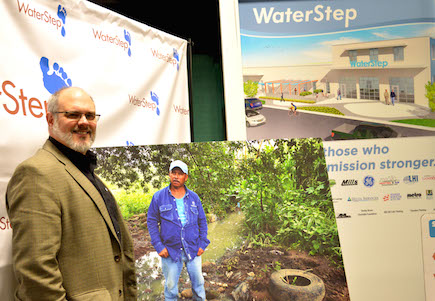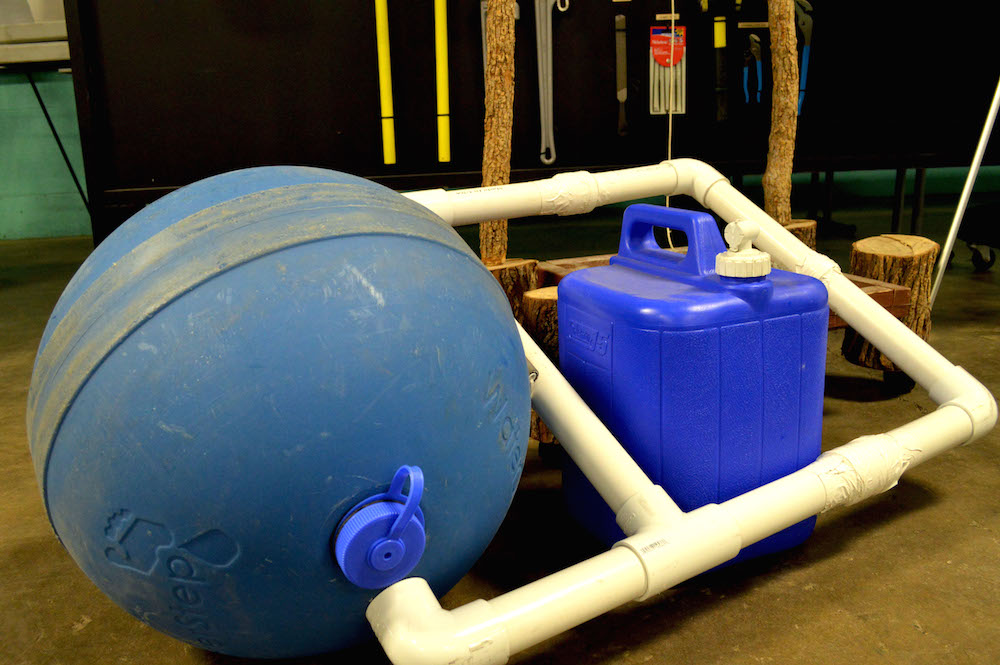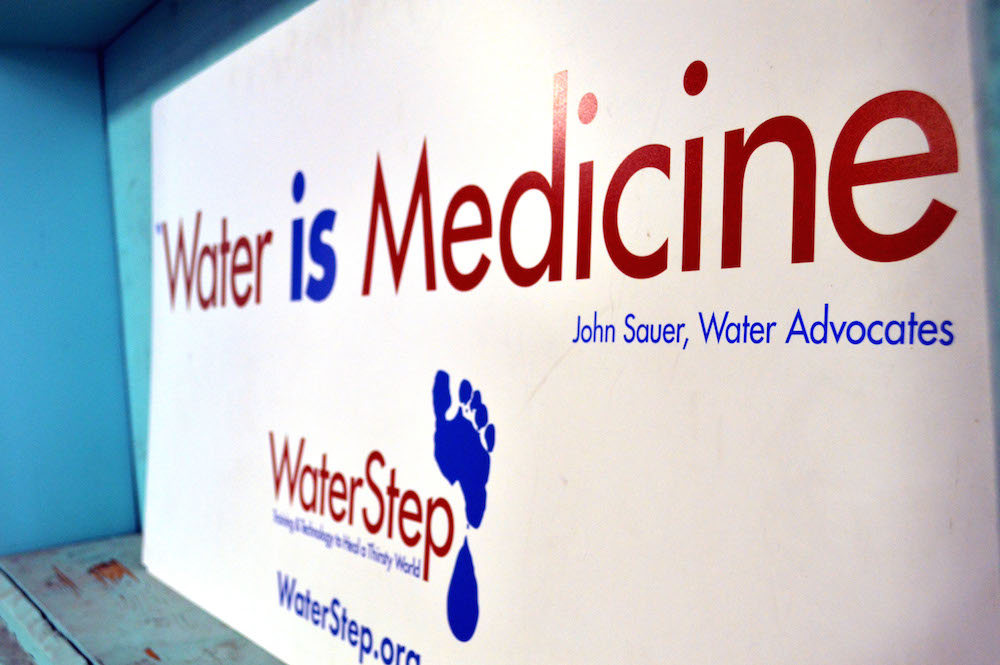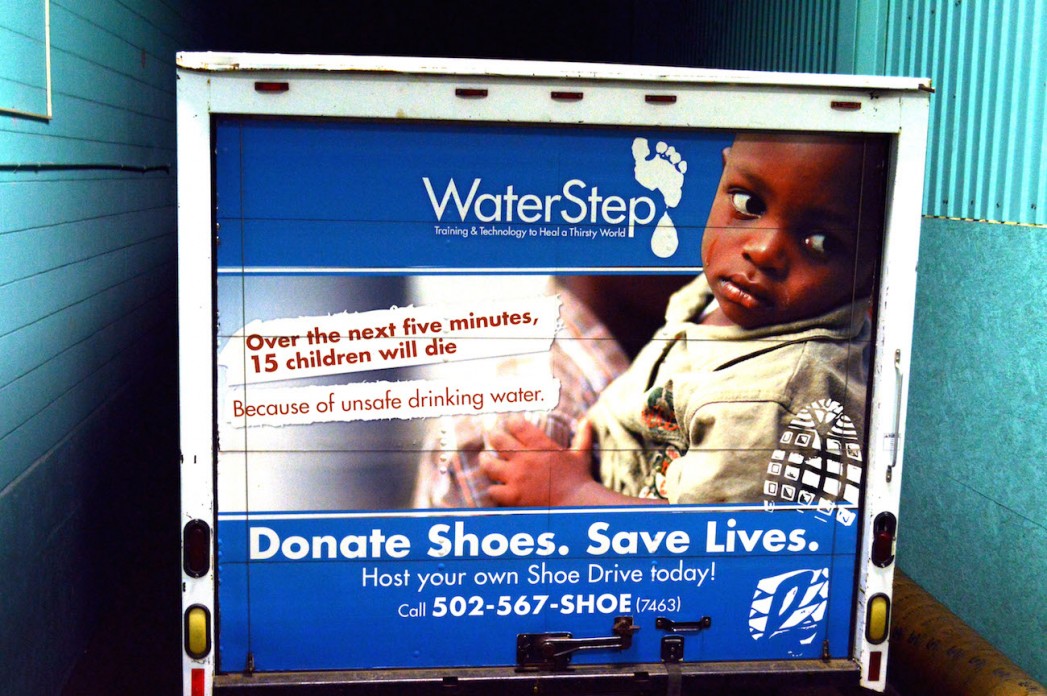Do you drink water bottled or from the tap? What if your tap water was brown and bottled water was too expensive? Many people in other nations live without clean water for most of their lives; many risk their lives drinking unclean, bacteria-filled water. Water Step is a non-profit organization based in Louisville, KY working to bring the gift of water to these less fortunate people because “safe water can save lives.”

I had the opportunity to sit down and talk with Mark Hogg, the CEO and Founder of Water Step. Water Step began in 1995 after he became aware of the water situation while on a trip to West Africa. Water Step focuses on three main aspects: water purification, health education, and well repair, and this is carried out through training and a community model implementation. Some countries where Water Step has brought relief to include the Philippines, Costa Rica, Haiti, Kenya, India, and their upcoming project, Uganda. They have and continue to train and equip volunteers to do water projects in dozens of countries around the world.

Water Step realizes the difficulty of transporting equipment and teaching people of other countries; therefore, they have come up with some creative solutions. Their pack of tools consists of a chlorine generator, a filter system, hand pumps, hand pump repair tools, and water balls. The chlorine generator (the first chlorine generator was created in Louisville, KY in 1896) creates the chlorine to disinfect the water and make it safe to drink. Next, is the filtration system to remove the particulates and other impurities from the water, making it look clean. The hand pumps are used with wells in the area, and the natives are taught how to use the tools to make repairs later on. Finally, the water ball is a contraption that Water Step invented to help the people carry water from the wells back home. It is a large rubber ball connected to a system of plastic pipes in the shape of a small cart.

Aside from providing the necessary equipment to provide clean water, Water Step also partners with organizations in each location to implement their community model: families and homes, clinics, schools and education, training and maintenance. Water Step takes about 10 trips per year to different locations with volunteers. Once there, they set up the wells with the pumps and start the education process. They incorporate a school program to teach students about health and hygiene so that they may pass the information onto their families, friends, and others in the community. Additionally, the people of the town are taught how to use the chlorine generators, filtration system, and water balls so that everyone may have the ability to clean and carry their own water. With this setup, Water Step ensures that a proper system is in place and that the system will be maintained and successfully utilized after they leave.
Hogg explained that Water Step has teamed up with Ivy Tech to create an online program to provide education on the water purification system, tools, and health education so that a team doesn’t have to be sent overseas every time. These lessons are to be available to other partner organizations in the target countries, leaving the equipment as the last step. Hogg emphasized that they have become creative with equipment transportation by asking individuals they have networked with, who are traveling to a target country, to carry an extra bag to pass on upon arrival. Hogg reiterated that by “carrying a bag, there’s a life-saving tool” to be put to use.

Water Step is a growing organization with big dreams, but how is everything funded? They collect shoe donations throughout Kentucky, Delaware, Maryland, Ohio, and the Northeast for reimbursement. The shoes fund about 20% of the budget, but Hogg is proud to explain that the other 80% is gathered through donations. Hogg was keen in mentioning that March is World Water Month, and Water Step is promoting their shoe drive goal of filling a tractor trailer this month to kickstart the funding for their upcoming Uganda project. The Uganda project is partnered with a non-profit medical organization in Uganda; together they’ll be beginning healthcare and clean water to a rural town. Listings of shoe donation locations in KY, such as Porter Paints and Mortenson Dental offices, can be found on Water Step’s website.

Hogg revealed that on March 20, Water Step will be announcing whether or not they have reached their shoe goal, and on March 22, World Water Day, Water Step will be celebrating the day with water companies at the WaterWorks Museum at the Louisville Water Tower Park from 10a.m.-5p.m. World Water Day will have speakers and activities for the whole family.
I asked Hogg what was Water Step’s take-away for someone from a first-world country as well as a third-world country. This was his reply.
To the First-World Individual: “Have you ever wanted to change the world? The greatest problem in the world is water. Thus a great act of compassion is to save a life with safe water. We can help you do that.”
To the Third-World Individual: “What if you could have the tools to impact the health of your family and your community? We can help you with that.”
Water Step is constantly expanding their horizons and developing new inventions. Hogg explained Water Step’s new disaster response equipment and their growing collaboration with Normalyte and Habihut to bring greater benefits to the world. More information about Water Step’s and HabiHut’s work can be seen at the Kentucky Science Center from March 13 to mid-April. Visit the Water Step website to donate, to start a shoe drive, or to become a volunteer.
Photo Courtesy of Irena Tran



